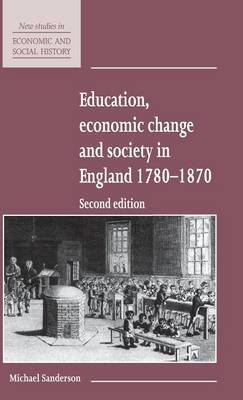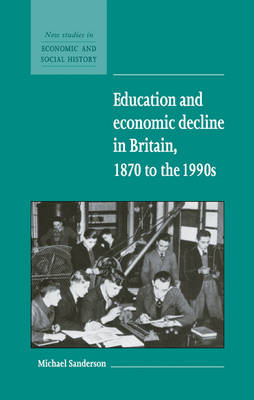New Studies in Economic and Social History
2 total works
Education, Economic Change and Society in England 1780–1870
by Michael Sanderson
Published 17 February 1983
In this study, Dr Sanderson reviews the history of education in the nineteenth century and the academic debates surrounding it. He examines the discussion surrounding literacy, its trends and significance in the creation of an industrial labour force. He also considers the successful development of a middle-class scientific culture in the eighteenth century and the relative failure to develop technical education in the nineteenth. This period was marked by the development of the Victorian public school and by reforms in the universities. It also saw the involvement in education by radical working class and feminist groups, who were struggling for recognition. As this study shows, the education system could be highly responsive in some areas and yet insensitive in others to the far-reaching economic and social advances of the first industrial Revolution.
Education and Economic Decline in Britain, 1870 to the 1990s
by Michael Sanderson
Published 22 April 1999
Since the 1870s the British economy has steadily declined from its position as the 'workshop of the world' to that of a low-ranking European power. Michael Sanderson examines the question of how far defects in education and training have contributed to this economic decline. By looking at issues such as literacy, the quality of scientific and technical training, the supposed anti-industrial bias of public schools and the older universities, the neglect of vocational and technical training and the neglect of the non-academic teenager, Michael Sanderson demonstrates that education was far from the sole cause of economic decline, but that its deficiencies have certainly played a part. This book offers an accessible and concise analysis of a topic of current importance, interest and debate and will be of interest to students and teachers of the history of education and its impact on British economic development in the twentieth century.

